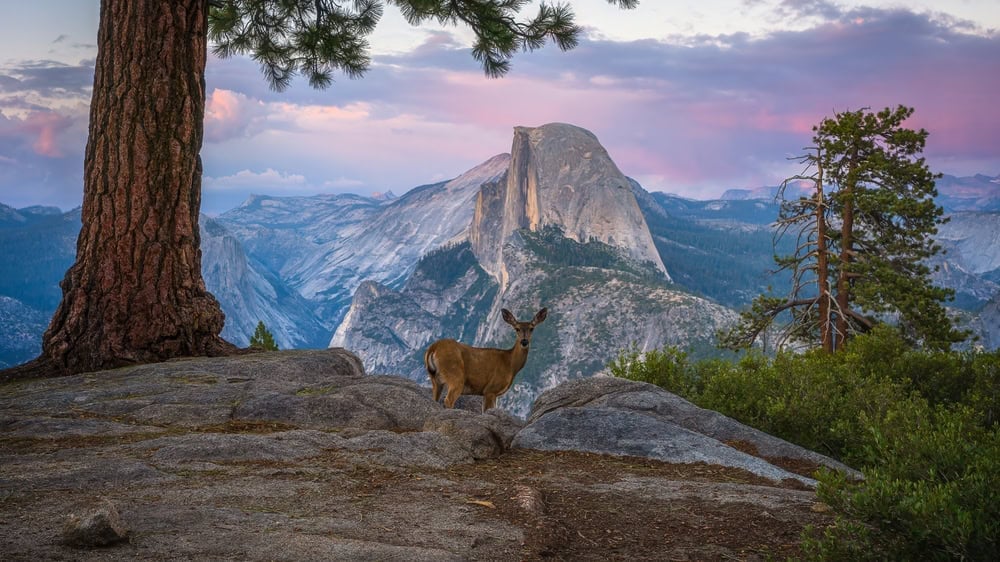Why the Right Keeps Choosing Profit Over the Planet
The political right’s opposition to environmental protection is driven by a complex mix of ideology, economic interests, and cultural identity, not just corporate influence. Modern conservatives often prioritize private property rights, minimal regulation, and short-term economic growth over conservation, despite a Republican legacy of environmental leadership that dates back to Theodore Roosevelt.
Anti-Regulatory Conservatism Origins
The ideological roots of anti-regulatory conservatism can be traced to a fundamental shift in Republican environmental policy that occurred in the late 20th century. According to historians James Morton Turner and Andrew C. Isenberg, this transformation stemmed from “the rise of conservative ideology, the mobilization of interest groups and activists, and the changes in the environment and the regulatory state.” (Conservative Ideology and the Environment)
Through the 1970s, Republicans generally accepted that environmental problems required government intervention, but in subsequent decades, many came to view environmental claims as “alarmist and exaggerated” while dismissing professional expertise.
This ideological stance has been reinforced by framing environmental protection as part of America’s culture wars. Right-wing populism typically portrays climate advocates as part of a “corrupt elite” disconnected from the priorities of “the people,” fostering skepticism among supporters.
Research has established a clear link between support for right-wing populist parties and climate skepticism, with studies showing such voters are less likely to prioritize environmental concerns over economic growth. (What Are the Effects of Environmental Deregulation?)
Property Rights vs Environment

Photo credit Les Stone Photo
At the core of right-wing resistance to environmental protection lies a near-sacred view of private property rights. Environmental laws that restrict landowners’ activities—such as the Clean Water Act or Endangered Species Act—are frequently framed as unjust government interference, even when these regulations protect shared resources like rivers or groundwater. The Supreme Court’s 2023 decision in Sackett v. EPA exemplifies this tension, dramatically curtailing federal protections for millions of acres of wetlands based on property rights arguments.
This ideological stance ignores a fundamental ecological reality: pollution doesn’t stop at property lines. When the EPA’s authority is limited, as seen in recent Supreme Court decisions regarding the “good neighbor rule” and Waters of the United States regulations, the consequences extend far beyond individual properties. The court has shown an unprecedented willingness to intervene in environmental regulations before they’re fully implemented or even before lower courts have ruled, with Kevin Minoli, former EPA counsel, noting: “It’s like, we’re going to tell you the answer before you even ask the question.”
Industry Influence and Consequences

The alignment between right-wing politics and extractive industries has profound environmental and health consequences. Fossil fuel companies, timber, and mining interests donate heavily to Republican campaigns and fund conservative think tanks that produce anti-regulatory arguments. In return, GOP lawmakers push to open national forests to logging, roll back emissions rules, and weaken endangered species protections. The Trump administration alone rolled back at least 100+ environmental safeguards. (The Trump Administration Rolled Back More Than 100 Environmental Rules. Here’s the Full List. – The New York Times)
These deregulatory actions have measurable impacts: increased air and water pollution leading to respiratory diseases, contaminated drinking water, and premature deaths.3 Environmental impacts that existed before EPA regulations—toxic air, poisoned water, and acid rain that killed forests—risk returning under aggressive deregulation. (A String of Supreme Court Decisions Hits Hard at Environmental Rules – The New York Times)
The economic costs are substantial but often hidden, as pollution externalities shift from industry to society through higher healthcare expenses, environmental cleanup costs, and lost productivity in sectors like agriculture, tourism, and fisheries. The Supreme Court’s recent decisions, including ending the Chevron doctrine after 40 years, further threaten the EPA’s ability to implement environmental protections.(The Betrayal: Why the Far Right Abandoned Action on Climate Change | Oxford Political Review | Oxford Political Review)
Conservative Environmentalism: A Lost Tradition

The Republican Party has a rich but often forgotten environmental legacy that stands in stark contrast to its current positioning. Theodore Roosevelt, a Republican president, established himself as America’s foremost conservationist by creating 50 wildlife refuges, 18 national monuments, and 5 national parks while putting conservation high on the national agenda. His conservation efforts weren’t merely about protecting nature for its own sake but ensuring that society as a whole benefited from America’s natural resources rather than just select individuals or corporations.
This conservative environmental tradition continued with Richard Nixon, who despite not campaigning on environmental issues, became one of America’s “greenest” presidents. Nixon created the Environmental Protection Agency through executive order in 1970, consolidating functions scattered among 44 government offices to address pollution holistically. His administration oversaw the passage of landmark legislation including the Clean Air Act, Clean Water Act, and Endangered Species Act, while Americans celebrated the first Earth Day. Nixon framed environmental protection not as a partisan issue but as “a cause beyond party and beyond factions” that represented “the birthright of every American.” (Richard Nixon and the Rise of American Environmentalism | Science History Institute)
This lost tradition demonstrates that environmental protection was once central to conservative governance rather than opposed to it, with half of America’s historically “greenest” presidents being Republicans. (A Conservative History of Environmentalism – Marine Fish Conservation Network)
Blurring the Lines: When Environmentalism Serves Power, Not Justice
The environmental movement’s ideological history is more complex than today’s partisan lines suggest. While modern conservatives often oppose environmental regulation, right-wing environmentalism has a long and unsettling legacy. From the nationalist conservation policies of early 20th-century America to Nazi Germany’s ecological laws, nature has at times been invoked not to promote justice, but to consolidate power.
The U.S. conservation movement that helped create the national parks system was shaped by racial hierarchies. Figures like Madison Grant — a leading conservationist and eugenicist — viewed nature preservation through a white supremacist lens. Many parks were created through the forced removal of Indigenous peoples, based on the belief that “wilderness” should be untouched by human presence — meaning Native presence was erased. (Madison Grant and the Dark Side of the Conservation Movement)
Similarly, Nazi Germany embedded environmental protection into its governing ideology, enacting some of the world’s earliest animal welfare and land-use laws. But these measures were closely tied to blood-and-soil nationalism, reinforcing ideas of ethnic purity and homeland, not ecological stewardship. ( The ecofascist legacy of the Nazis: historical roots of far-right ecologies )
Today, some far-right movements echo this history, using environmental concerns — especially around population, immigration, and resource scarcity — to push anti-immigrant and xenophobic agendas. This strain of “eco-fascism” isn’t hypothetical: it’s been cited in manifestos by perpetrators of racist mass violence, including the 2019 Christchurch shooter. (Two mass killings a world apart share a common theme: ‘ecofascism’– Washington Post)
Understanding this history matters. It reveals that environmentalism is not inherently progressive or inclusive. Without grounding in justice and equity, ecological rhetoric can be twisted to serve authoritarian, exclusionary aims.
Environmental Protection Is a Political Choice
The modern right’s rejection of environmental protection is not simply about protecting profits — it’s about protecting a worldview. That worldview privileges deregulation over precaution, property rights over public health, and economic growth over ecological stability. It draws from a lineage that has grown increasingly hostile to environmental governance, even as the planet faces mounting climate and biodiversity crises.
But it didn’t have to be this way. The conservative tradition once treated conservation as a civic and patriotic duty — a way to safeguard national resources for future generations. Today’s right has largely abandoned that ethos, replacing it with suspicion of science, disdain for regulation, and allegiance to industries that degrade the commons.
This shift has left a vacuum — one where even environmental language is being appropriated by far-right ideologies to serve exclusionary and authoritarian goals. When conservation becomes detached from justice, it ceases to be truly environmental at all.
Reclaiming environmental protection as a nonpartisan imperative means confronting not only corporate influence but the deeper ideological currents that equate liberty with the right to pollute. It means rejecting the myth that regulation is inherently oppressive and recognizing that true freedom includes the right to clean air, safe water, and a livable future.
Nature doesn’t care about political ideologies, but politics will determine whether nature survives us.
“It’s The Economy, Stupid”: Why Americans Always Vote With Their Wallet Over Human Rights

READ: “It’s The Economy, Stupid”: Why Americans Always Vote With Their Wallet Over Human Rights
The results of the 2024 presidential election have sparked conversations about priorities, particularly highlighting a common perception that many Americans prioritize economic stability over broader social issues, like human rights.
“It’s the economy stupid” was a phrase coined by Democratic strategist James Carville in 1992, when he was advising Bill Clinton in his run for the White House. It appears it is true once again.
This phenomenon brings to light a pattern where voters might focus on immediate financial concerns rather than policies affecting social justice, equality, and human rights. But why do people seemingly make these choices, and what does this mean for society?
Join Us

Join us on this empowering journey as we explore, celebrate, and elevate “her story.” The Queen Zone is not just a platform; it’s a community where women from all walks of life can come together, share their experiences, and inspire one another. Welcome to a space where the female experience takes center stage. Sign up for our newsletter so you don’t miss a thing, Queen!







